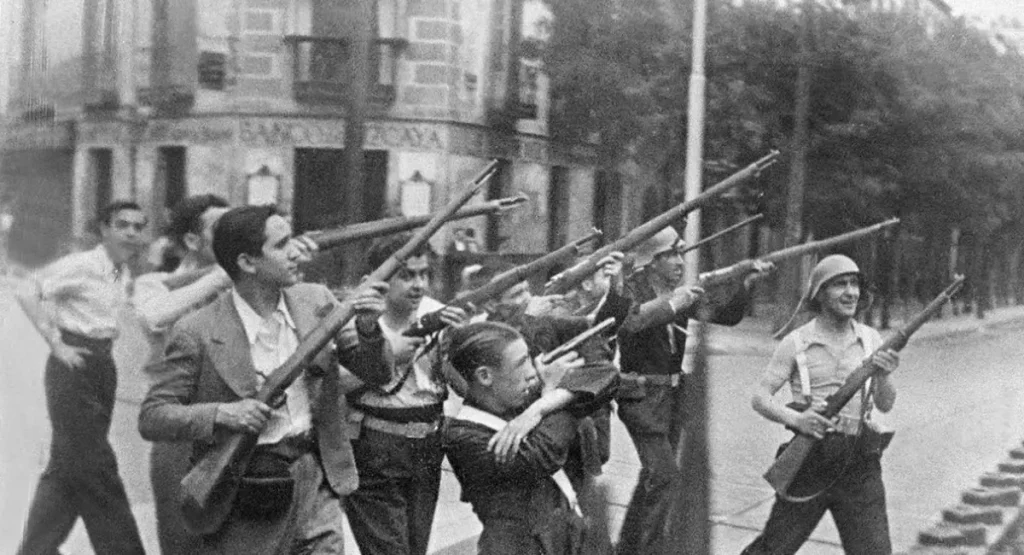
The Spanish Civil War, which break out in 1936, is one of the most important yet unrecognized conflicts of the 20th century. While other European countries, like Germany and Italy, were making headlines with their rising dictatorships, Spain was embroiled in a civil war that shaped its future and left a deep scar on its people. This lack of attention from the world is primarily due to the dramatic developments in Germany and Italy, which overshadowed Spain’s struggles during those years. In the book, Precipice of the Labyrinth by Brian Snowden highlights the main events of the war and it effects all around.
At its centre, the book stresses upon how the Spanish Civil War was a battle between two main factions: the Republicans, who favored a more progressive, leftist agenda, and the Nationalists, led by General Francisco Franco, who advocated for conservative, authoritarian rule. Both sides were supported by external powers Nazi Germany and Fascist Italy aided Franco, while the Republicans received limited assistance from the Soviet Union. However, the international attention Spain received was minimal compared to the chaos brewing in neighboring countries.
The war spanned from 1936 to 1939, and its devastation was catastrophic. Over half a million people died, and many more were displaced, including thousands of intellectuals and artists who fled the oppressive environment that followed Franco’s victory. The killings committed during the war, including mass executions, bombings, and severe repression, were on par with those seen in other modern conflicts. However, because of the dominance of news about Hitler’s rise in Germany and Mussolini’s regime in Italy, Spain’s tragedy was relegated to the background.
The book reflects on the experiences of a young American who witnesses this conflict firsthand. Through his journey, readers get a glimpse into the brutal realities of the war and the political chaos of Europe at the time. The voyage to Spain in the midst of a civil war speaks to a broader interest in the upheavals of the time, particularly in the years leading to World War II. But it also highlights how, even as Europe seemed to be edging towards global conflict, Spain was often an addition.
Today, the Spanish Civil War continues to be overlooked in many historical discussions. Perhaps this is because Franco’s rule lasted long after World War II, keeping Spain out of the spotlight during crucial post-war reconstruction periods. It wasn’t until his death in 1975 that Spain began transitioning to democracy. The country’s painful journey towards freedom was born from a civil war that the world often chose to forget. Yet, this conflict was an essential prelude to the ideological struggles that later shaped Europe and the world.
Spain’s Civil War is also relevant today as a reminder of how global attention can sometimes miss equally important tragedies. In an age where media focus shifts quickly between conflicts, some wars and human suffering get buried under more politically charged headlines. As global citizens, it is important to recognize that even overlooked conflicts leave behind legacies of pain, division, and major changes. The Spanish Civil War stands as a reminder that every war, even the ones not making to news, impacts lives in ways that echo for generations. To conclude, the Spanish Civil War deserves a closer look, not only for its historical importance but for the lessons it offers. Through works like On the Precipice of the Labyrinth, this chapter in history is brought to life, ensuring that the sacrifices and tragedies endured during this conflict are not forgotten. Spain’s story is a real example of the price a nation pays when the world looks the other way.
© Copyrights 2024 Brian Snowden. All Rights Reserved